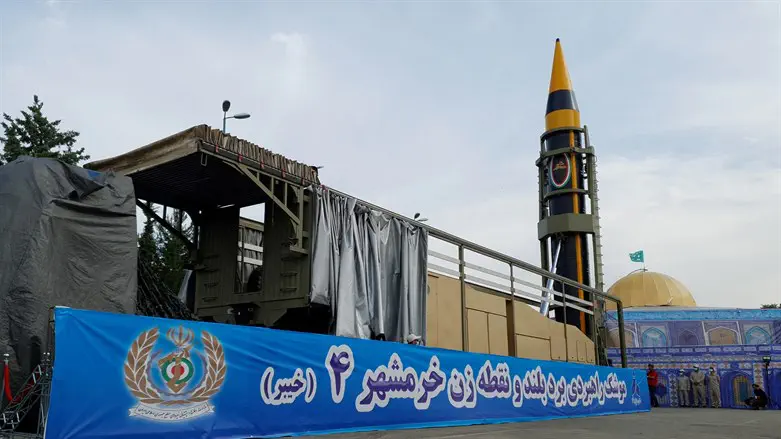
Iran launched a satellite into space on Saturday with a rocket built by the country’s paramilitary Revolutionary Guard, The Associated Press reported, citing Iranian state-run media.
Iran described the launch as a success, which would be the second such launch to put a satellite into orbit with the rocket. There was no immediate independent confirmation of the launch’s success.
Footage published by Iranian media showed the rocket blasting off from a mobile launcher. An Associated Press analysis of the video and other imagery later released suggested the launch happened at the Guard’s launch pad on the outskirts of the city of Shahroud, some 350 kilometers east of the capital, Tehran.
Iran identified the satellite-carrying rocket as the Qaem-100, which the Guard used in January for another successful launch.
The solid-fuel, three-stage rocket put the Chamran-1 satellite, weighing 60 kilograms, into a 550-kilometer orbit, state media reported. The rocket bore a Quranic verse: “That which is left by Allah is better for you, if you are believers.”
Iran has several times tried to launch satellites into space. Last September, the Revolutionary Guards launched a new military imaging satellite, the Nour-3.
Last January, a top Iranian official claimed that Iran’s paramilitary Revolutionary Guard had launched a solid-fuel satellite carrier rocket into space and that the test was successful.
A month earlier, Iran claimed it had successfully launched three research satellites into space. According to Ahmad Hosseini, a Defense Ministry spokesman, the rocket used was a Simorgh.
A day later, however, Iran acknowledged that the space launch failed to put its three payloads into orbit after the rocket was unable to reach the required speed.
Iran’s satellite launches have been condemned by the US and its allies, who say that Iran’s satellite launches defy UN Security Council Resolution 2231.
Resolution 2231 enshrined Iran’s 2015 nuclear deal with Britain, China, France, Germany, Russia and the United States and calls on Iran to refrain for up to eight years from work on ballistic missiles designed to deliver nuclear weapons.
The US State Department and the US military did not immediately respond to requests for comment on Saturday’s Iranian launch.
